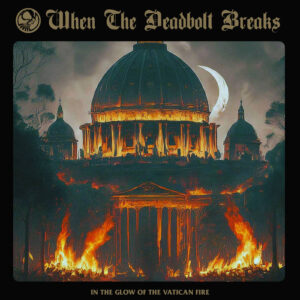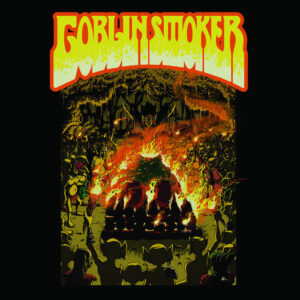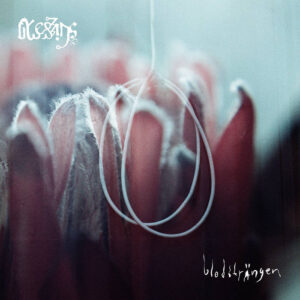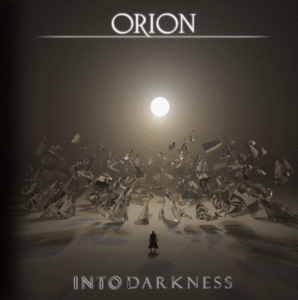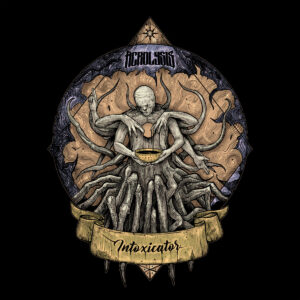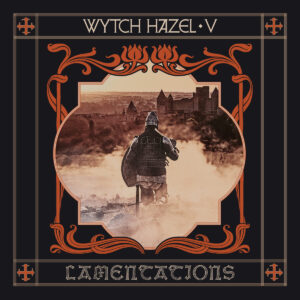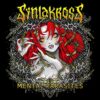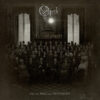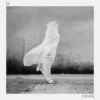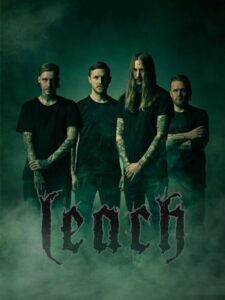Reverend Mick Finnegan
Finnegan's Hell

•
April 1, 2020
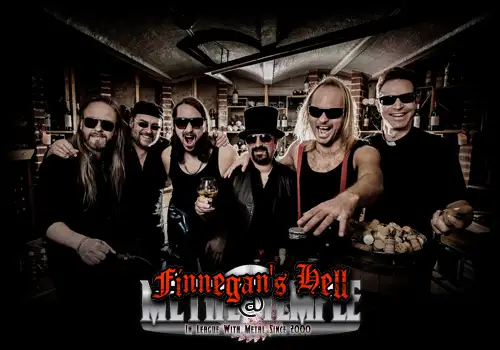
We don't have any connection to Celtic music other than our appreciation of The Pogues and The Dubliners. We wanna play the kind of music they play, but a lot faster.
We talked about where Joyce's character Finnegan ends up after his wake, and we figured he probably didn't make it to heaven but ended up in a much hotter place. That assumption rubbed off on our band name.
I taught myself to play the tin whistle and the banjo, after being inspired by The Pogues and The Dubliners. Old Roxy has played the accordion since he was a kid. His dad showed him how it's done.
Celtic music is not that popular in Sweden, but most of us ended up in various bands performing traditional Celtic songs, since it's good pub music. Then we got fed up with playing pubs. We wanted to speed the music up and take it to the big stage, and so we did.
"Work Is The Curse Of The Drinking Class" is a song which sums up our view on how work gets in the way of drinking. It's very personal, and could also be viewed as a political statement.
When people go out drinking, they want to have fun. That's why we have written a number of songs which put a smile on your face and makes you wanna buy another round.
Shane MacGowan is the most talented writer in the Celtic punk genre. We admire his ability to pen down songs, and we respect his uncompromising lifestyle. To try to copy him is doomed to fail. We like to pay tribute to him though.
We won't be writing about ancient Irish history, because we know nothing about it. We will stick to our guns and write tales of life, death and alcohol - the holy trinity of Finnegan's Hell.
That song is about the American dream becoming a nightmare, something which many people have experienced the last 100 years, or even longer. It's also a song about the hardships that face immigrants in general.
That song is our take on the blues. I guess Leadbelly's music was the inspiration for it.
"The Last Dance" is a bad dream about falling for the wrong woman and being fully aware of it from the very beginning - a scenario some might be able to relate to. "Tokyo Town" is a sort of drunken love story about meeting the barmaid of your dreams and making love to her in the bathroom of the pub where she's working. It was inspired by at trip to Japan. "Parasite" was inspired by Ace Frehley's classic song with the same title, and it is also inspired by an acquaintance who lost everything in a divorce.
The banjo is a very diverse instrument suitable for many moods. When we started Finnegan's Hell in 2010 I had never played the banjo. I've fooled around with it for ten years now, and I'm still surprised by its possibilities. The accordion can be used in many different ways too. Old Roxy puts distortion on his accordion and uses a wah pedal from time to time. The two instruments go good together, as does the tin whistle and the accordion.
"When I'm Dead" is a poem by the British poet Christina Rossetti (1830-1894). Pabs Finnegan found her poem by chance when he was cruising the internet, and he decided to put music to it. I think it's the perfect song for ending an intense album such as "Work Is The Curse Of The Drinking Class".
We have been talking about making our own beer for as long as the band has existed. Then we finally managed to get a brewery interested in making the Finnegan's Hell brew. It's a porter with a rich flavor, and we are very pleased with it. The only problem is that our brew is too easy to drink. There is a demand for it which exceeds the supply. But we are working on that.
The virus has really screwed things up for us. Hopefully most of the shows that got canceled now can be rescheduled. We'll see what happens. The only thing we know right now is that we'll be doing festival gigs at the end of the summer. Since we can't perform right now, we focus on making new songs. I have come up with lyrics for at least ten new ones during the last two weeks, when I've had to be isolated myself because of suspected covid-19.
All the best
Reverend Mick Finnegan
More results...
